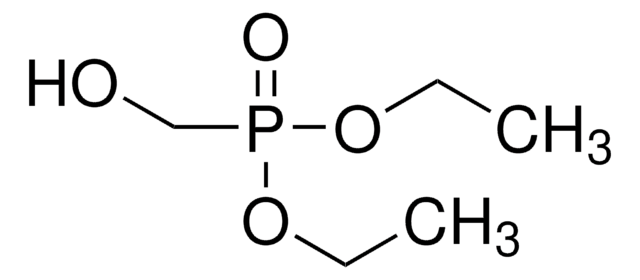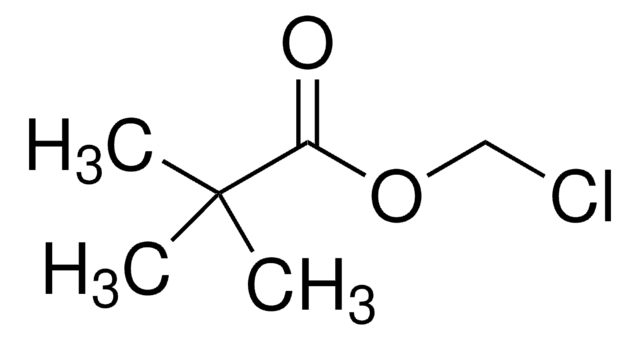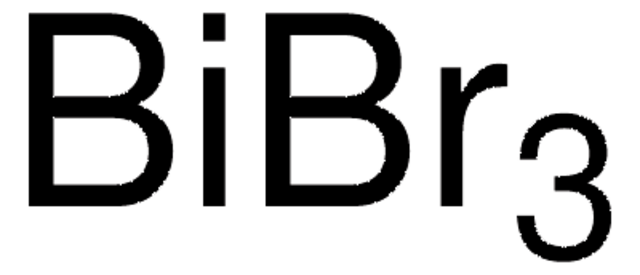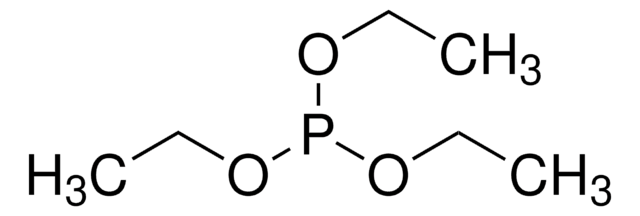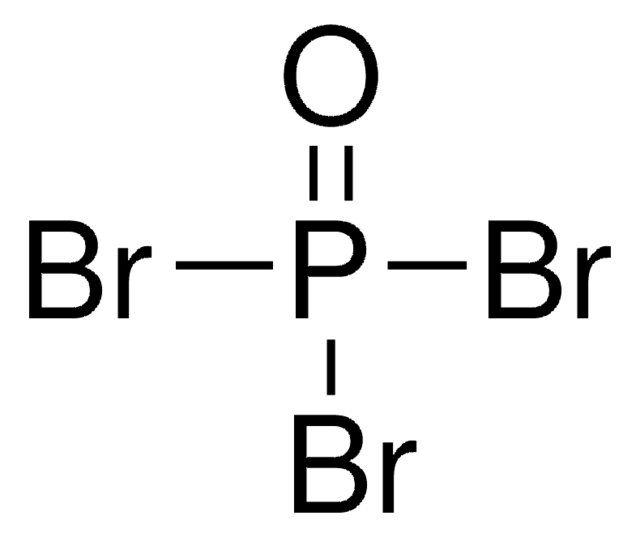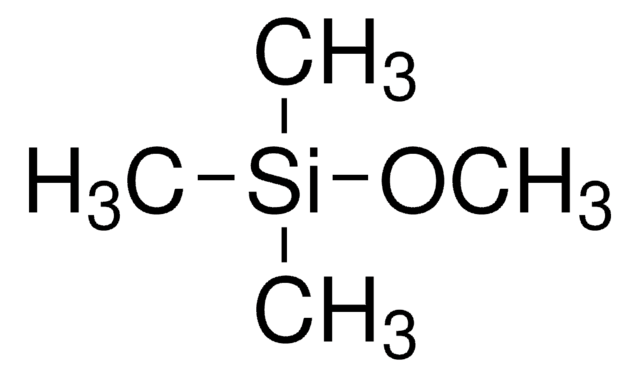194409
Bromotrimethylsilane
97%
Synonym(s):
TMBS, Trimethylbromosilane, Trimethylsilyl bromide
Sign Into View Organizational & Contract Pricing
All Photos(1)
About This Item
Linear Formula:
(CH3)3SiBr
CAS Number:
Molecular Weight:
153.09
Beilstein:
1731135
EC Number:
MDL number:
UNSPSC Code:
12352103
PubChem Substance ID:
NACRES:
NA.22
Recommended Products
Quality Level
Assay
97%
form
liquid
contains
copper as stabilizer
refractive index
n20/D 1.424 (lit.)
bp
79 °C (lit.)
density
1.16 g/mL at 25 °C (lit.)
SMILES string
C[Si](C)(C)Br
InChI
1S/C3H9BrSi/c1-5(2,3)4/h1-3H3
InChI key
IYYIVELXUANFED-UHFFFAOYSA-N
Looking for similar products? Visit Product Comparison Guide
Application
Used with InCl3 to catalyze the direct allylation of a variety of alcohols with allyltrimethylsilane.
Signal Word
Danger
Hazard Statements
Precautionary Statements
Hazard Classifications
Aquatic Acute 1 - Aquatic Chronic 1 - Eye Dam. 1 - Flam. Liq. 3 - Skin Corr. 1B - STOT SE 3
Target Organs
Respiratory system
Supplementary Hazards
Storage Class Code
3 - Flammable liquids
WGK
WGK 3
Flash Point(F)
89.6 °F
Flash Point(C)
32 °C
Personal Protective Equipment
dust mask type N95 (US), Eyeshields, Gloves
Choose from one of the most recent versions:
Already Own This Product?
Find documentation for the products that you have recently purchased in the Document Library.
Customers Also Viewed
Takahiro Saito et al.
The Journal of organic chemistry, 71(22), 8516-8522 (2006-10-27)
The combination of InCl3 and Me3SiBr provided an enhanced Lewis acid system that can be used to promote a wide range of direct coupling reactions between alcohols and silyl nucleophiles in non-halogenated solvents, such as hexane or MeCN. The enhanced
Aldrichimica Acta, 14, 31-31 (1981)
Tetrahedron Letters, 34, 7713-7713 (1993)
M Nomizu et al.
International journal of peptide and protein research, 37(2), 145-152 (1991-02-01)
A new two-step deprotection/cleavage procedure for t-butoxycarbonyl (Boc) based solid phase peptide synthesis is reported. First the protective groups are removed from 4-(oxymethyl)-phenylacetamidomethyl (PAM) resin attached peptide with the weak hard acid, trimethylsilyl bromide-thioanisole/trifluoroacetic acid (TFA). In the second step
J T Sparrow et al.
Peptide research, 9(5), 218-222 (1996-09-01)
The original trimethylsilyl bromide (TMSBr) method of peptide resin deprotection and cleavage has been modified for convenience and applicability to larger peptides. Equal amounts of a 66-residue test peptide resin were cleaved by the standard hydrogen fluoride (HF) procedure, the
Our team of scientists has experience in all areas of research including Life Science, Material Science, Chemical Synthesis, Chromatography, Analytical and many others.
Contact Technical Service


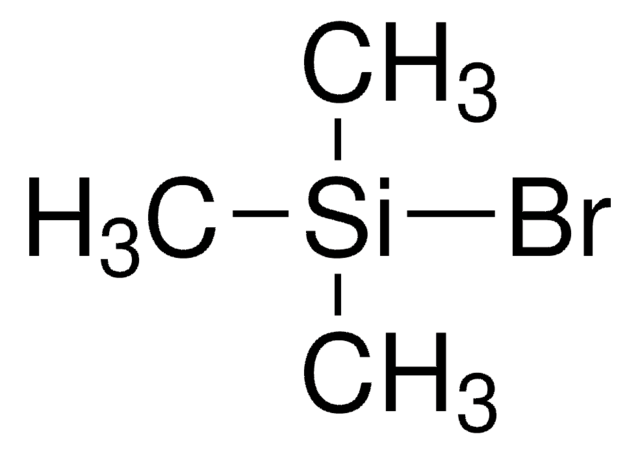

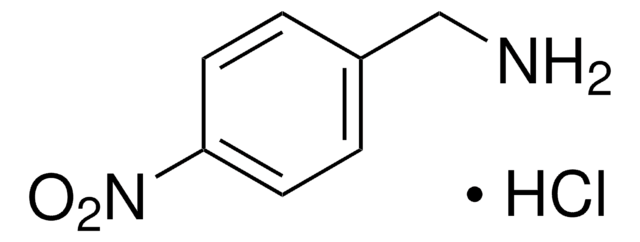


![1,8-Diazabicyclo[5.4.0]undec-7-ene 98%](/deepweb/assets/sigmaaldrich/product/structures/120/564/5b373e23-1624-489c-8efb-692de0f96ffb/640/5b373e23-1624-489c-8efb-692de0f96ffb.png)





